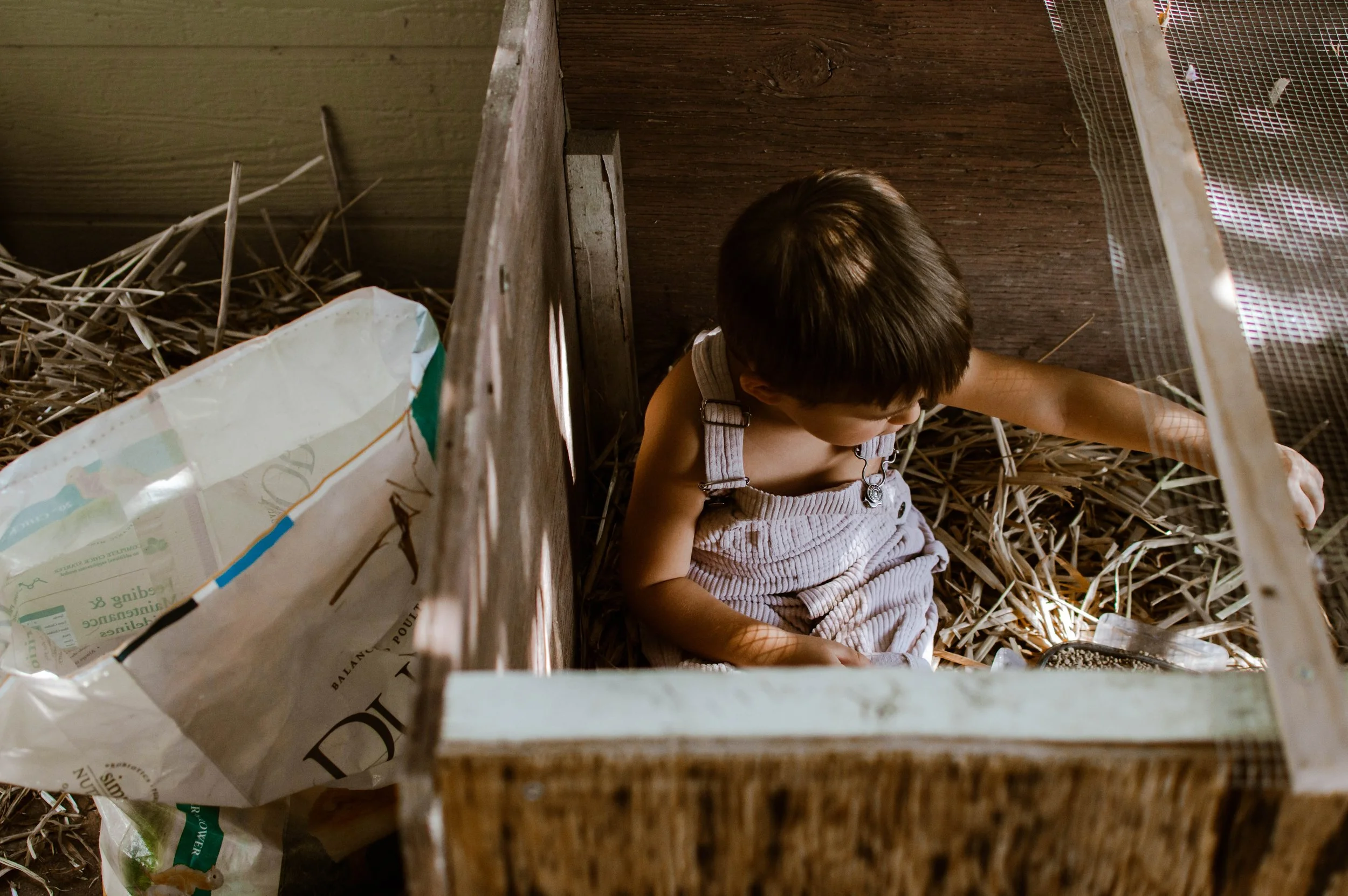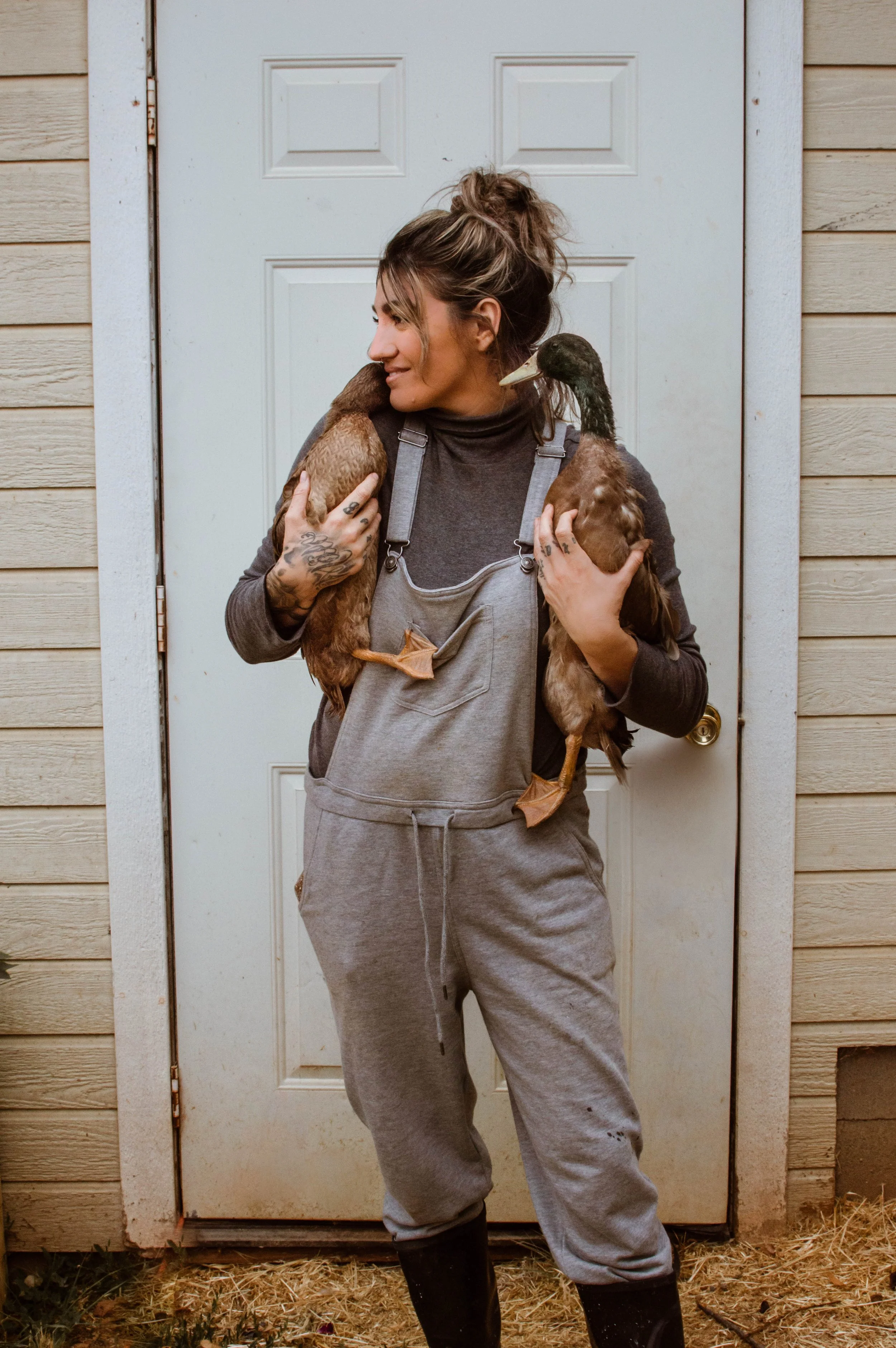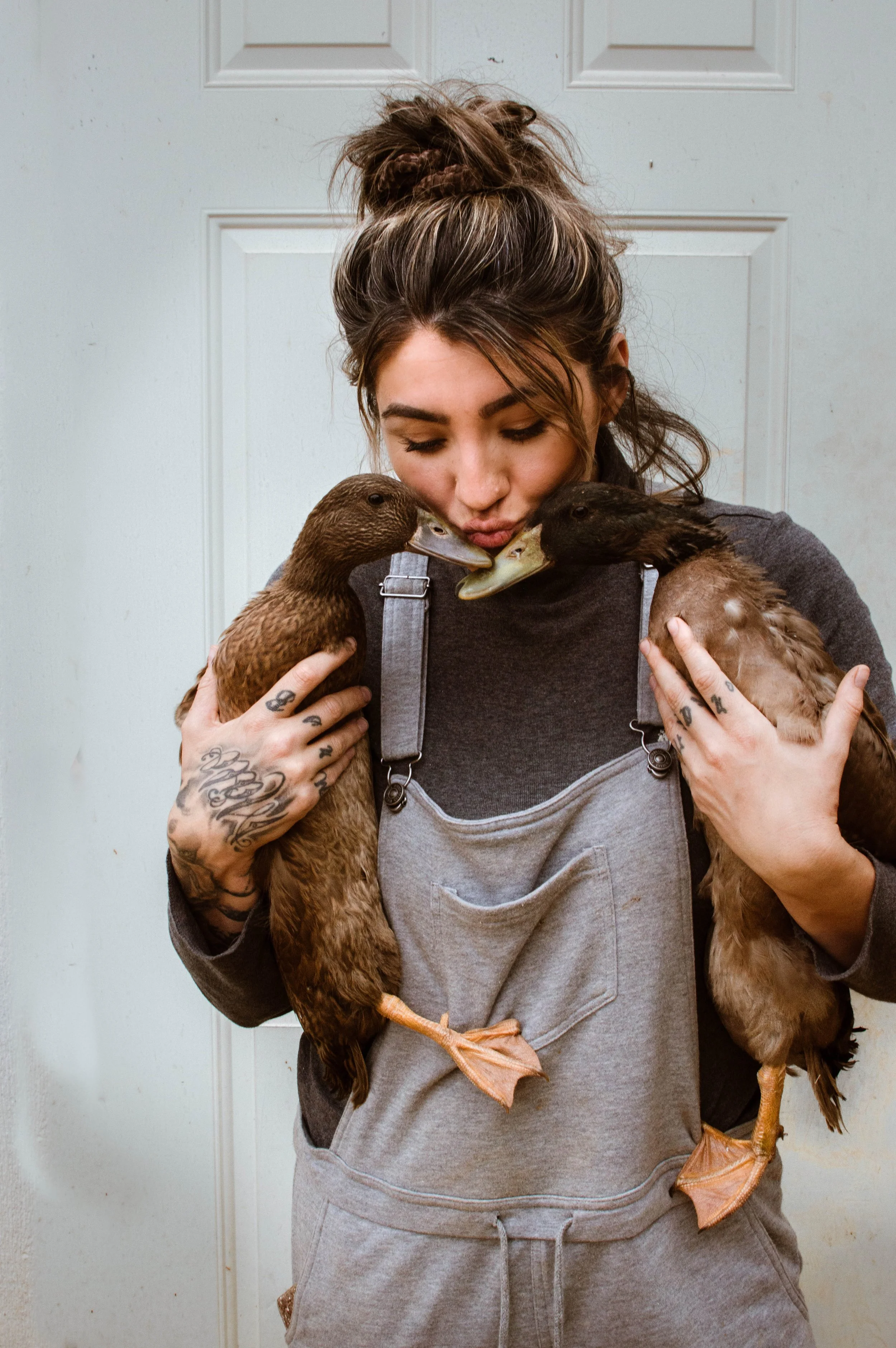A Guide To Caring For Ducks + Having Them Thrive
Yes, I will admit that ducks are as messy as people say they are however, given the chance, they are a delightfully wonderful animal to keep on your homestead or farm for land purposes, income potential and just for pure enjoyment. Ducks do require a different level of care however, so if you’ve been looking to start keeping ducks but are afraid of the hearsay, keep reading to help clear the fear.
WHY DO YOU WANT TO KEEP DUCKS
First I think it’s remarkably important to ask yourself why it is you want to begin keeping ducks in the first place. Your why is going to not only determine what breed you purchase but, also weather your experience is going to be a pleasant one. Ducks are able to fill a multitude of purposes on your land, but they do require different care than other flock animals and so it’s crucial you ask yourself the why behind the want. Ducklings are indeed one of the cutest things you’ll come across and unfortunately all to often people come home with them from the store for this reason. Just remember they do grow, and they’ll still need the same love and care they once had when they were smaller.
When considering animals on your land, you're also going to want to consider income potential as a way to cut down costs on keeping and raising them, as well as to earn extra for your homestead. Keeping this is mind I’ve listed a few good options for breeds known for both egg and meat production.
EGG AND DUAL PURPOSE BREEDS
Khaki Campbell
Friendly if handled often as ducklings. Known best to be a HIGH egg producer laying up to 300 + creamy tan eggs a year. Considered a dual purpose duck with a decent amount of meat and are exceptional at foraging for food independently. Great in your garden. I have owned many of this breed and have always been a fan.
Pekins
By far the most popular duck for most backyard + homesteads as they lay a very decent amount of large white eggs and also rank high in harvesting for meat, making them a great dual purpose bird. They grow quite quickly (so ensure proper nutrition).
Runners
Runners are also great foragers like the Khaki Campbell. They are great for the garden and keep pests and insects down as a plus. This duck is also a good option for egg production (though the KC is at the top of that list)
Muskovy
Though technically this bird is considered a South African waterfoul, it looks much like a duck and is used mainly for meat. Calm, friendly, make great mothers.
Ancona
Ancona ducks are considered dual-purpose. They are known for their distinctive black-and-white plumage, which is similar to that of a wild mallard, are excellent egg layers (producing upwards of 200 eggs per year). They are also good foragers and do well in free-range systems. In terms of meat production, Ancona’s have a good amount of breast meat and make excellent roasting birds.
Buffs
The Buff duck breed is a great dual-purpose duck. Their coloring is perfect for camouflage, making them difficult for predators to spot. Buff ducks are a great choice for homesteaders who want to raise ducks for both eggs and meat.
Rouen
Known for their large size and dark plumage. A ducks that lays 80-125 eggs per year can be option for dual purpose, but not a prolific egg layer as they can be unpredictable at producing. This duck is mainly kept for meat. Matures at 6-8 months.
Keep in mind also that not every breed will be suitable for living near neighbors. They can be rowdy, especially during first light. There are certain breeds that are quieter than others but to be honest, I’m not an expert in city duck.
WHY I KEEP DUCKS
I first began keeping ducks to diversify myself in the egg market. I sell to a number of small grocery store type farmers markets and duck eggs are a rare find that allows me to get a good price and a good name to my homestead. Ducks are also a part of my permaculture approach, adding biodiversity and keeping our land in mind. Ducks are hardy both for cold and hot weather and will lay their eggs well through the winter without light supplementation. As long as you keep them in good health (hydration, clean water for their hygiene and good diet) you’ll have very little issues with them.
HOW MANY DUCKS TO PURCHASE
DUCKS NEED THEIR FLOCK
These birds are very social creatures and require same breed companionship. Even though the recommended amount for a flock is 5 to 8 ducks, there are some things you need to consider.
Before you decide how many ducks to purchase your first go round, you’ll want to determine where you will be keeping them and how much space you currently have. Ducks on average need about 4-6 square feet per bird within their shelter and at least 16-20 square feet of outdoor living space (at minimum).
HOW MANY DRAKES (males) AND HOW MANY HENS?
I had two drakes that lived peacefully with 8 hens, but the recommendation is 5 females to every 1 male. To many males and you’ll end up with overly bred females and a lot of fighting. If you’re looking to simply collect eggs, just like chicken’s drakes are not required for hens to lay however, you will obviously need them if you’re planning on raising your own stock.
WHAT DO I DO IF I END UP WITH TOO MANY DRAKES?
In unsexed purchases you could end up with a bunch of males.
My simple answer?
Eat them. Duck meat is exquisite once you get the technique of cooking just right.
Long answer. Sell the meat, eat the meat, use the meat for your dogs, cats etc, sell as a pet to the RIGHT TYPE of owner. Some people decide they want to keep them as pets but, this becomes difficult since males together can get tricky, and you’d need to keep them separate from the females.
WHAT KIND OF SHELTER DO THEY NEED?
Living quarters for ducks is pretty simple. If you already have a predator proof area, their shelter can be as simple as a three walled structure with an open face (as long as it is deep enough). If predation is an iffy situation, I would recommend building a flight pen and putting a simple house inside of it. They will need the proper sqft and plenty of ventilation. Ducks do not like to jump into things, so ensure their house sits low or add a duck ramp. Another thing you may want to consider for their living area is pea gravel or the proper vegetation planted to mimic a natural habitat. Ducks are a waterfowl after al,l so if you don’t want everything muddy and messy, its best to take proactive steps to keep things in their area as dry as possible.
DO DUCKS NEED A POND?
While I do always recommend adding some sort of filtered body of water in their area before you add ducks to your lands, it’s not completely required. Ducks need water deep enough to dunk their heads and clean their nasal passages, eyes and plumes. It is absolutely crucial to their health. While you could get away with a deep pot or a bucket (which I experimented with) it was pretty pain staking to keep it clean, emptying it every day and refilling.
FEEDING REQUIREMENTS
One of the great things about owning these birds, is that they cost less to supplement feed than other flock birds like chickens. Ducks are excellent foragers and therefore live mainly from the land, but for great health they still need a few requirements.
FEED / DOSAGES BY AGE
For the first few weeks - 3 weeks of age, ducklings require NON MEDICATED duck or chick starter. If choosing chick (chicken) stater, be absolutely sure it is non medicated. The added medications in the starter are toxic to ducklings that consume much more starter than the average chick.
Weeks 3-12 Duck Grower (do not skip this step as ducks grow rather quickly and need the optimal nutrition)
Weeks 12 and onward duck maintenance
SUPPLEMENTATION
Niacin is crucial to growing / developing ducks (B3) Adding some brewers yeast to your feed (especially if your using chicken feed) is usually adequate for supplementing. The brewers yeast is a little hard to come by in stores but, you could order it on Amazon. Other foods you could feed that are high in niacin are
green peas
sweet potatoes
tuna (in water)
salmon (especially the skin)
sardines (in water)
pumpkin
WILL MY DUCKS FLY AWAY?
Most varieties of homestead and farm ducks have been bred with the improper wing system for flight. There are however always chances you get some that can indeed take flight. If this is the case..
Trimming Flight Feathers
You could trim the flight feathers. There are many great guides on how to do this online. It seems intimidating but I assure you, it’s quite simple especially with two people. Flight feathers are usually called “primary feathers”. Make sure you do your research as secondary feathers are not to by cut. Trimming primary feathers causes no pain or harm. They do grow back! So make sure to check.
Deer Fencing
Deer fence is usually used to section off a garden in areas where deer are very prevalent. It is 8’ high and thus prevents the duck from flying over or being able to leave the area.
Train The Ducks To Their Home
Just like chickens are unintentionally trained to run to you or the coop with certain sounds of feeding time, ducks can be trained to their “nesting” area. Take their favorite food or treat and call them to you. Make sure you use the same word or sound each time. Once they reach you give them that food (use that particular food only during training so they don’t become accustomed to it) Do this repeatedly for several weeks so that they associate the word or sound with their call home.
Proper Environment
If you do not have the proper environment + the environment is unclean, ducks will fly to relocated. Ensure that you have what they need. Happy ducks = ducks who want to stay.
WHAT TO LOOK OUT FOR
Ducks are accident prone when it comes to their legs! they are awkward creatures after all. Wherever you choose to keep them, make sure there is nothing their legs can fall between or get caught in.
MATURITY
Different breeds reach full maturity at different ages. Rule of thumb is 4-8 months. High egg producers will usually take longer to reach egg laying stage, such as the Khaki Campbell and the Pekins.
MOLTING
Right before your duck reaches maturity, they will begin to molt! They look like hell and you’ll probably be taking to the internet to find out where you went wrong but, before googling duck diseases, look up molting age for the breed.
All in all I know it seems a bit high maintenance going through all of this article, but when we start keeping any animal it can seem daunting. If you do decide to give ducks a try, I promise once the anxiety eases and you have ensured proper set up BEFORE bringing them home, you will come to fall in love with their quirky personalities and the help they lend in your gardens. Starting small is always best, so begin with 3-4 ducks and work your way to a happy and healthy flock.





